
-
 Ron Guy has been pre-selected by the Socialist Alliance to run for the seat of Melton in the Victorian state election in November. Guy was born in Bacchus Marsh where he lives with his partner and son. He has been an Australia Workers Union (AWU) delegate for more than 15 years. Guy was one of the main instigators of setting up the Arts co-operative Maribyrnong River Edge Artists Movement, believed to be one of the longest running arts co-operatives in Australia.
Ron Guy has been pre-selected by the Socialist Alliance to run for the seat of Melton in the Victorian state election in November. Guy was born in Bacchus Marsh where he lives with his partner and son. He has been an Australia Workers Union (AWU) delegate for more than 15 years. Guy was one of the main instigators of setting up the Arts co-operative Maribyrnong River Edge Artists Movement, believed to be one of the longest running arts co-operatives in Australia. -
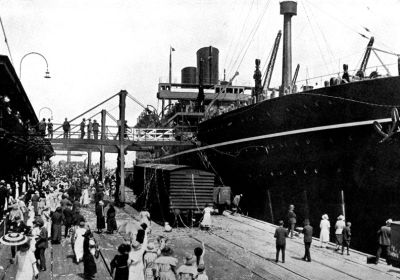 All societies need some form of law and order. Over many years of political organising, police who agreed with my right to protest and assisted when political or industrial rallies were being organised earned my respect. But throughout Australia’s history, there are many examples of how laws in our society tend to protect the rights and property of the wealthy at the expense of the working class. Well known are massacres against Aboriginals and miners at Eureka. Less well publicised has been police violence during industrial disputes, acting on the side of employers.
All societies need some form of law and order. Over many years of political organising, police who agreed with my right to protest and assisted when political or industrial rallies were being organised earned my respect. But throughout Australia’s history, there are many examples of how laws in our society tend to protect the rights and property of the wealthy at the expense of the working class. Well known are massacres against Aboriginals and miners at Eureka. Less well publicised has been police violence during industrial disputes, acting on the side of employers. -
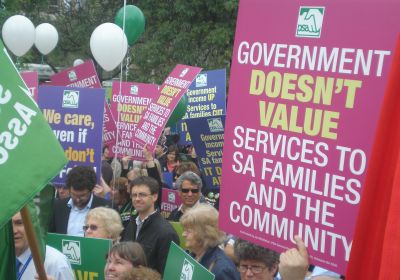 Union pressure is building against Premier Mike Rann's ALP government of South Australia. Treasurer Kevin Foley and Rann have been targeted in a campaign by trade unions against the recent state budget. A number of rallies have been called since the budget was handed down. The largest so far, on October 14, estimated at 10,000 by the Public Service Association (PSA).
Union pressure is building against Premier Mike Rann's ALP government of South Australia. Treasurer Kevin Foley and Rann have been targeted in a campaign by trade unions against the recent state budget. A number of rallies have been called since the budget was handed down. The largest so far, on October 14, estimated at 10,000 by the Public Service Association (PSA). -
 Beware! Labour hire Little Jonny Howard's anti-worker IR laws are alive and well and living in a state near you. After asking if we could have a cleaner to look after the lunch sheds and toilets, I was sent an email while on RnR telling me I was no longer required, even though the Gorgon/Chevron gas project is still ramping up workers with my qualifications. North West Labour Solutions, based in Albany, WA, has taken advantage of workers and their good faith by offering employment under the guise of what is essentially an AWA.
Beware! Labour hire Little Jonny Howard's anti-worker IR laws are alive and well and living in a state near you. After asking if we could have a cleaner to look after the lunch sheds and toilets, I was sent an email while on RnR telling me I was no longer required, even though the Gorgon/Chevron gas project is still ramping up workers with my qualifications. North West Labour Solutions, based in Albany, WA, has taken advantage of workers and their good faith by offering employment under the guise of what is essentially an AWA. -
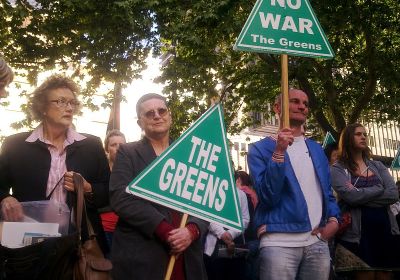
Below are excerpts from the October 20 speech in the federal House of Representatives — part of the debate on the war in Afghanistan — by Greens member for Melbourne, Adam Bandt.
-

On October 19, at exactly 3.30pm, the Lib-Lab politicians suddenly went from smirk to sombre as the Afghanistan “debate” finally started — nine years too late. It was a farce.
-
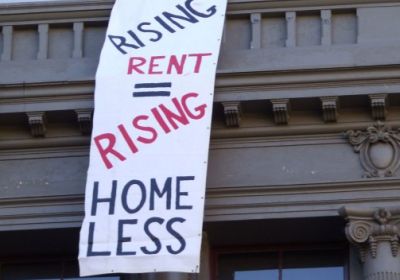 Sources in Victorian public housing say proposed changes to the system will increase rents for tenants and replace government-funded public housing with more expensive privatised housing. Public housing in Victoria is being dismantled and privatised by stealth, without open and genuine public consultation.
Sources in Victorian public housing say proposed changes to the system will increase rents for tenants and replace government-funded public housing with more expensive privatised housing. Public housing in Victoria is being dismantled and privatised by stealth, without open and genuine public consultation. -
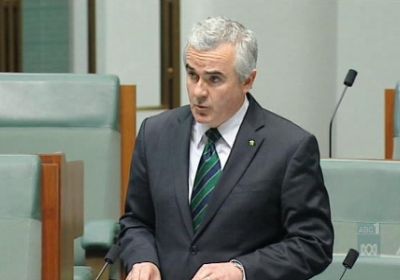
The second MP to speak in the House of Representatives debate on Australian military intervention in Afghanistan – a debate held nine years after the intervention began – was the newly elected independent Member for Denison (Tasmania) Andrew Wilkie.
-
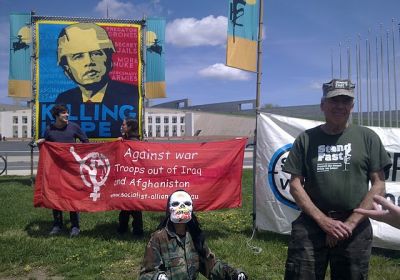
On October 19, at exactly 3.30pm, the Lib-Lab politicians suddenly went from smirk to sombre as the Afghanistan “debate” finally started – nine years too late.
-
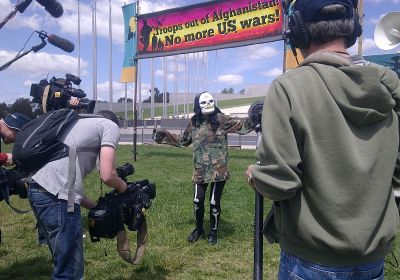
On October 19, Sydney Stop The War Coalition activist Marlene Obeid was dragged out of the parliamentary public gallery as Australia's Prime Minister Julia Gillard announced that Australian troops would be "engaged in Afghanistan at least for the rest of this decade".
-
 The Australian dollar has become a favourite for international currency speculators. Fuelled by expectations of rising interest rates, the A$ has increased in value from US$0.82 in June, to almost $0.98 on October 12. Some expect the $A could surpass the value of the US$ in coming weeks.
The Australian dollar has become a favourite for international currency speculators. Fuelled by expectations of rising interest rates, the A$ has increased in value from US$0.82 in June, to almost $0.98 on October 12. Some expect the $A could surpass the value of the US$ in coming weeks. -
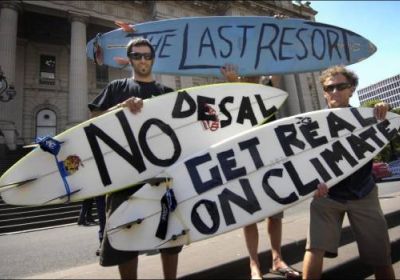 About 50 people attended politics in the pub at the Queensberry hotel on October 12, to discuss the upcoming November 27 Victorian elections. Greens candidate for Melbourne, Brian Walters, spoke about the Victorian ALP government’s record. He said the contract for the proposed desalination plant is secret, but the cost is likely to be about $18 billion. The plant will use huge amounts of electricity and add to greenhouse pollution.
About 50 people attended politics in the pub at the Queensberry hotel on October 12, to discuss the upcoming November 27 Victorian elections. Greens candidate for Melbourne, Brian Walters, spoke about the Victorian ALP government’s record. He said the contract for the proposed desalination plant is secret, but the cost is likely to be about $18 billion. The plant will use huge amounts of electricity and add to greenhouse pollution.